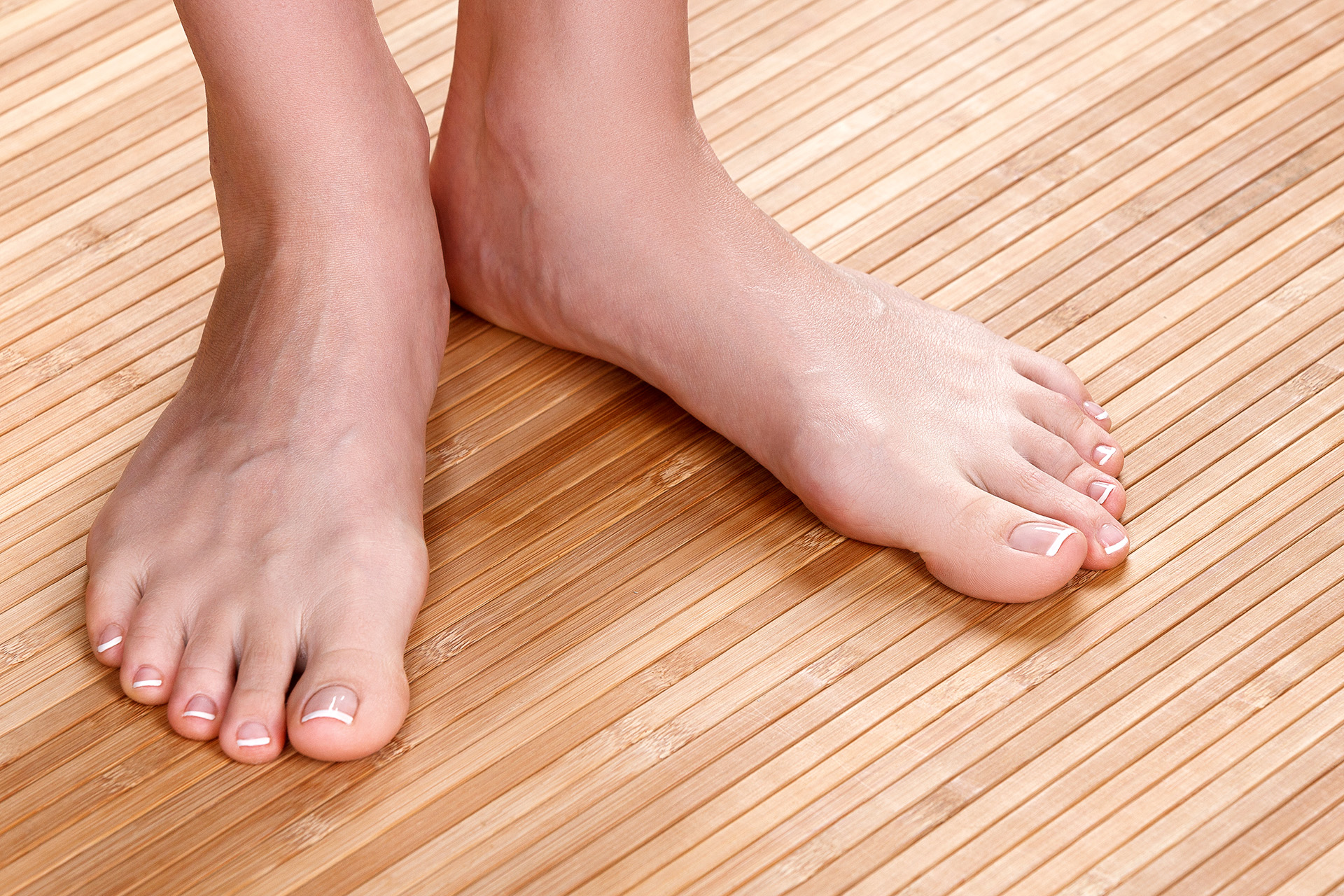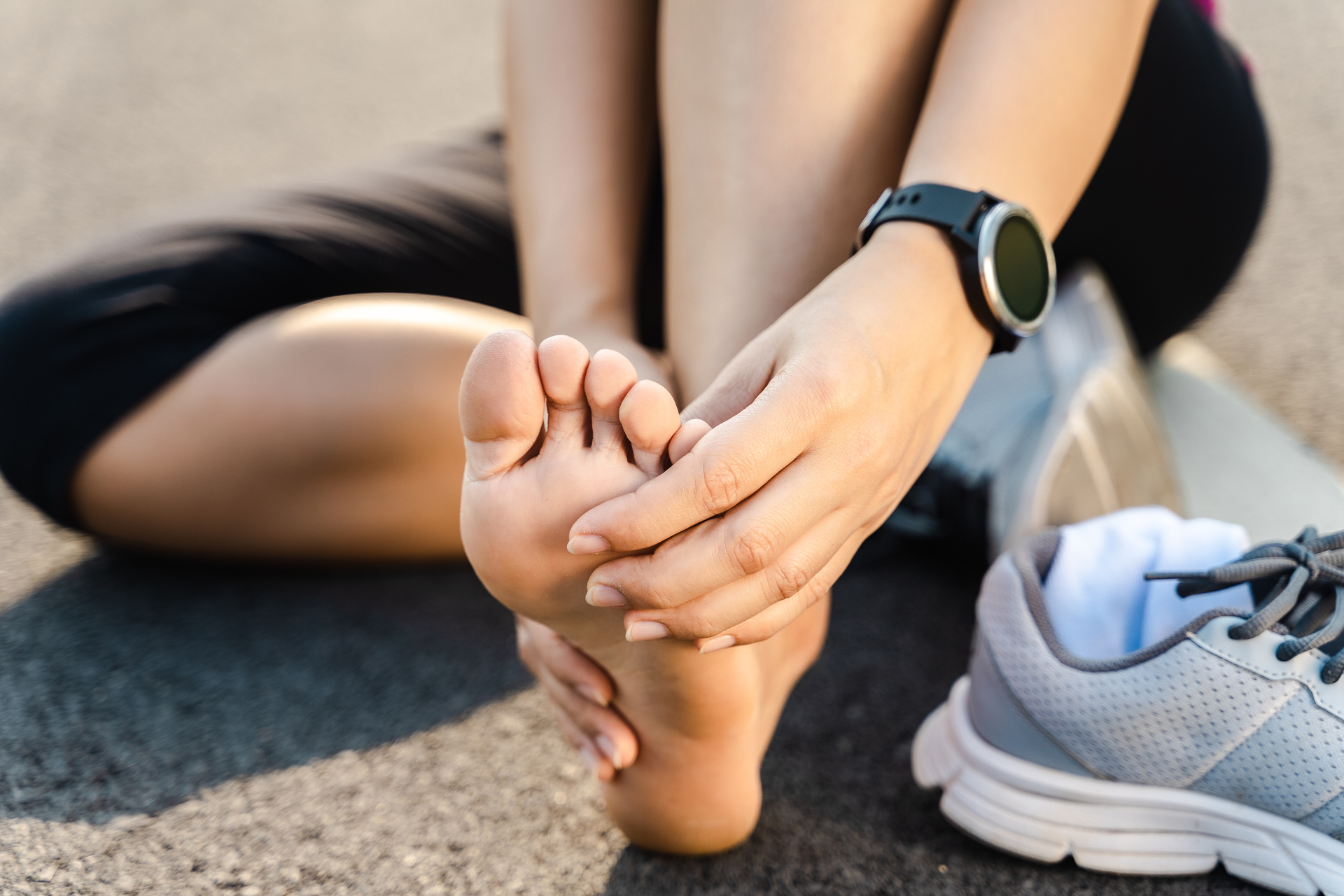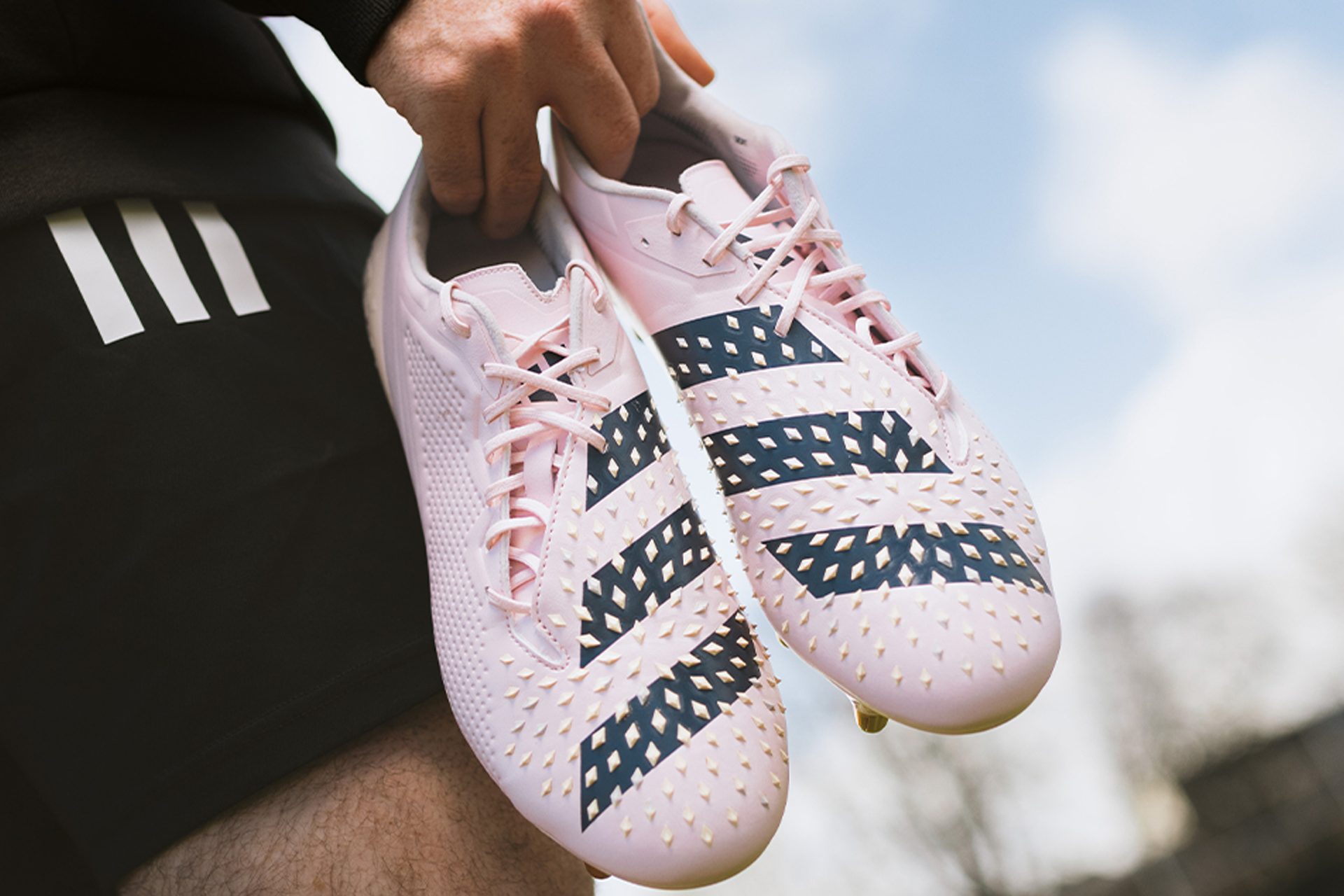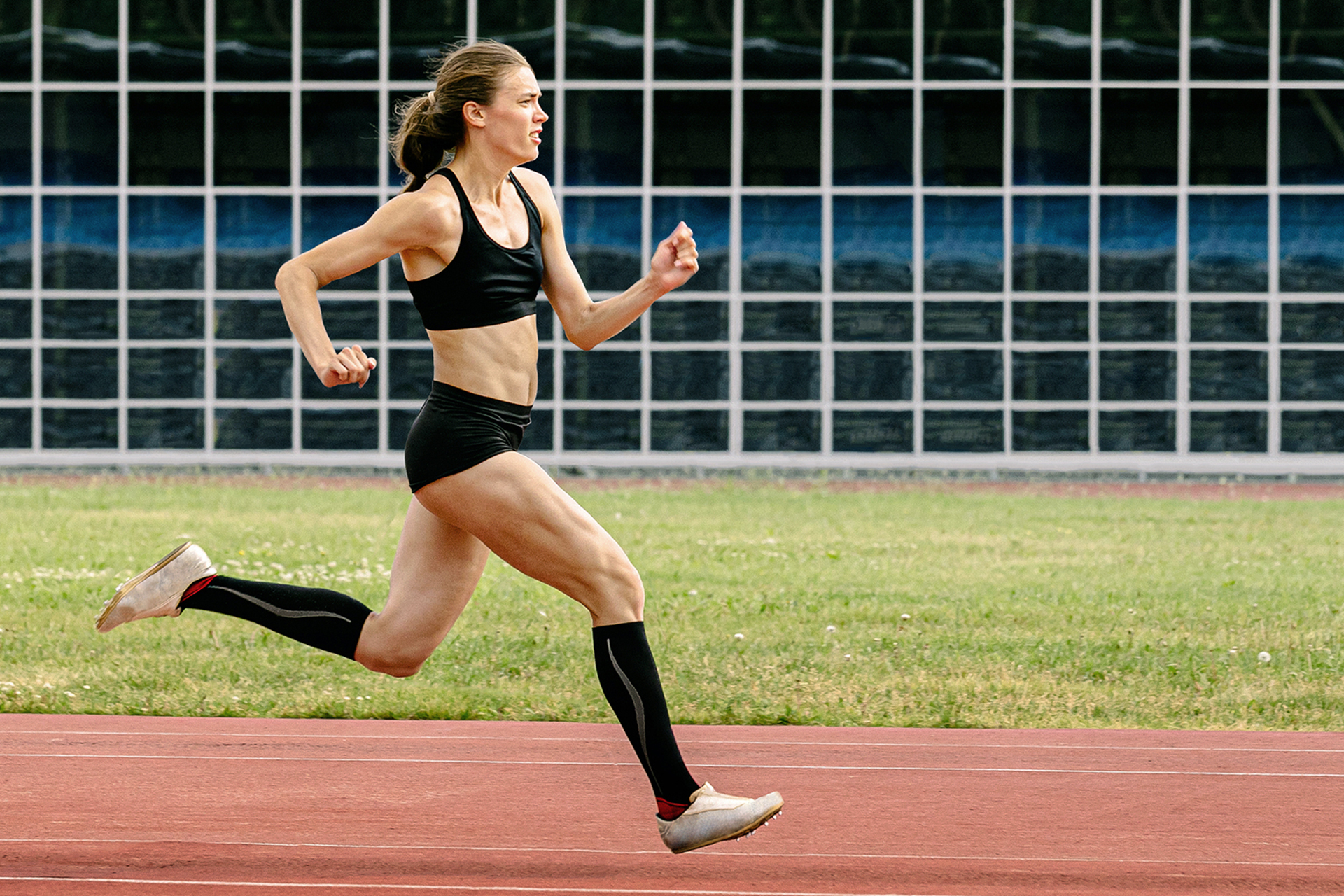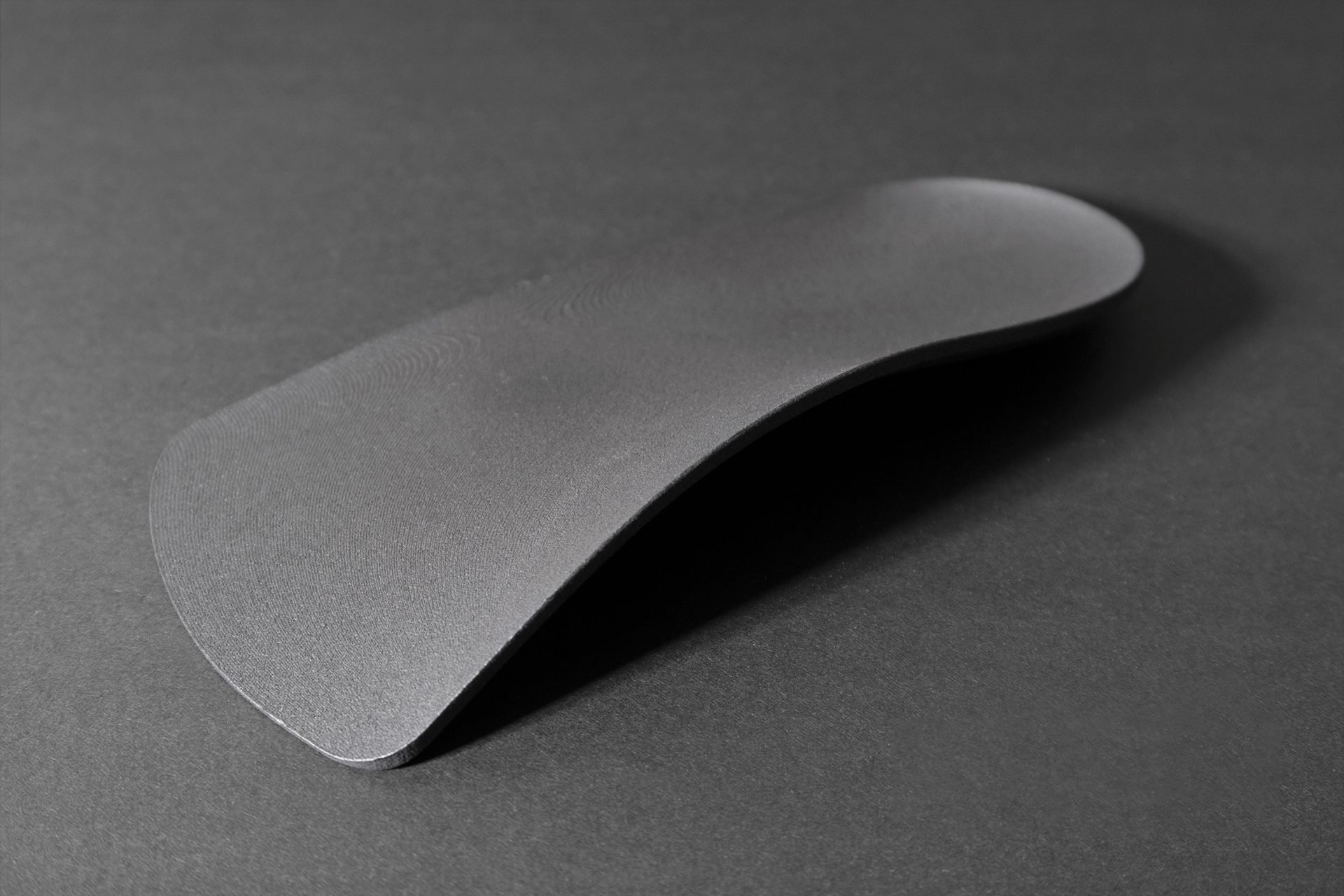Sever’s Disease, sometimes called ‘heel pain syndrome in kids’, typically affects children aged 8 to 14 during their fast-growing years. It happens because the heel’s growth plate (at the back of the foot) gets inflamed from too much activity, causing pain and swelling.
Boys, particularly those active in high-impact sports, overweight, or using poorly supportive shoes, are slightly more prone to Sever’s Disease. This condition typically resolves once growth plates close and children’s feet fully mature, ceasing to affect adults.
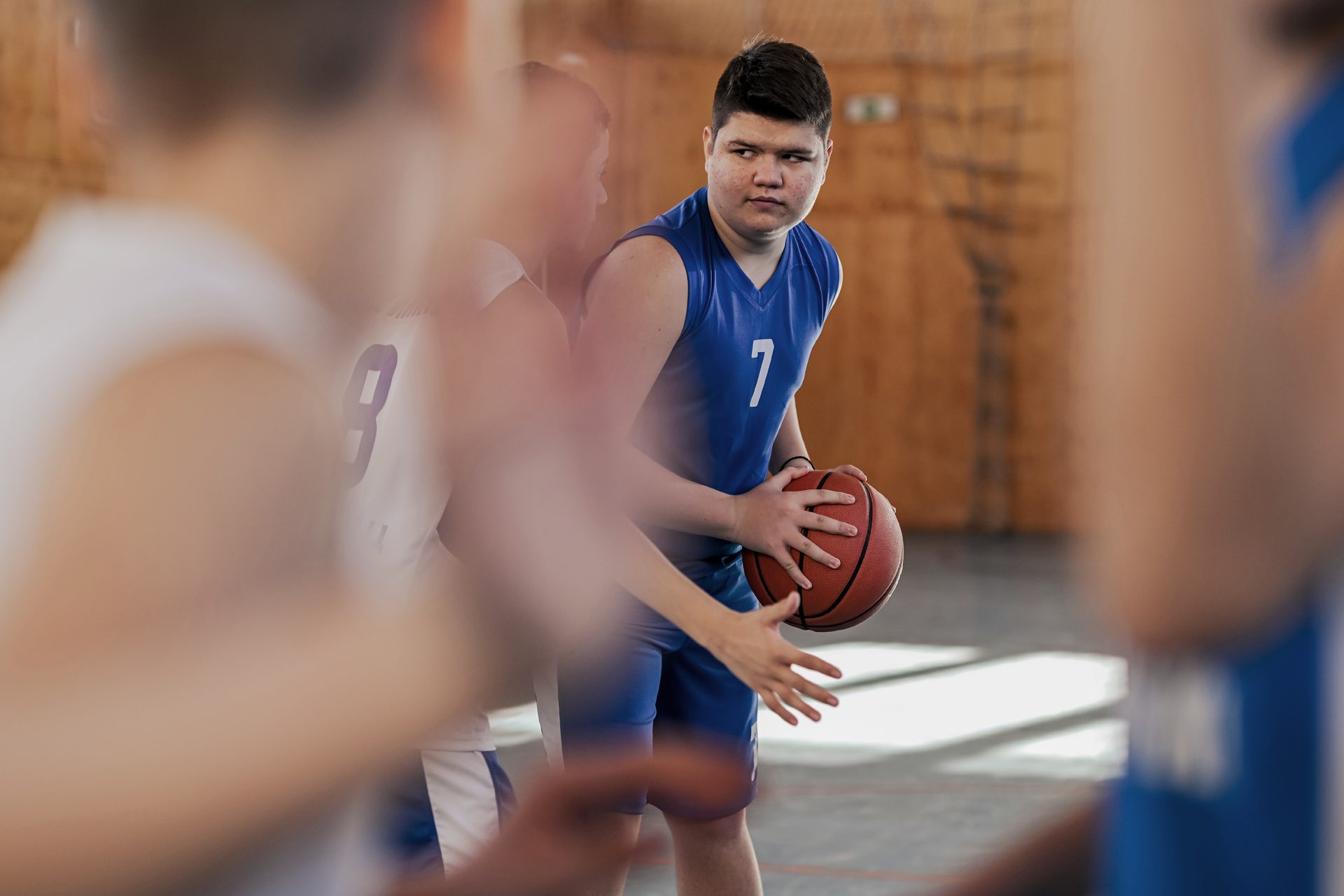
The condition can cause pain in one or both heels, worsening with activities like jumping and running on hard surfaces. The pain tends to improve with rest. Symptoms include tenderness, swelling, and redness in the heels. Although Sever’s Disease shares symptoms with dysfunctions like plantar fasciitis or shin splints, it’s specific to the growing part of a kid’s heel and the tightness in the Achilles tendon area.
If you think your child might have Sever’s Disease because of heel pain, it’s important to check with a paediatric sports podiatrist who can suggest the best ways to help them feel better. They may recommend taking it easy on sports, doing special stretches, wearing supportive shoes or using ice packs or anti-inflammatories to reduce the pain and swelling.
Managing Sever’s Disease with Podiatry
To diagnose Sever’s Disease, podiatrists usually perform a physical exam, pressing on different parts of the foot to find the sore spots. Sometimes, they might use X-rays or MRI scans to confirm the condition and ensure the pain isn’t from something else, like a fracture.
Podiatrists help kids with common heel pain issues during growth spurts. They start by checking the child’s foot thoroughly to ensure the diagnosis fits the symptoms and the stories of heel pain worsening with things like running. This step is essential to determining how to ease the pain and ensure the child’s foot grows healthy and strong.
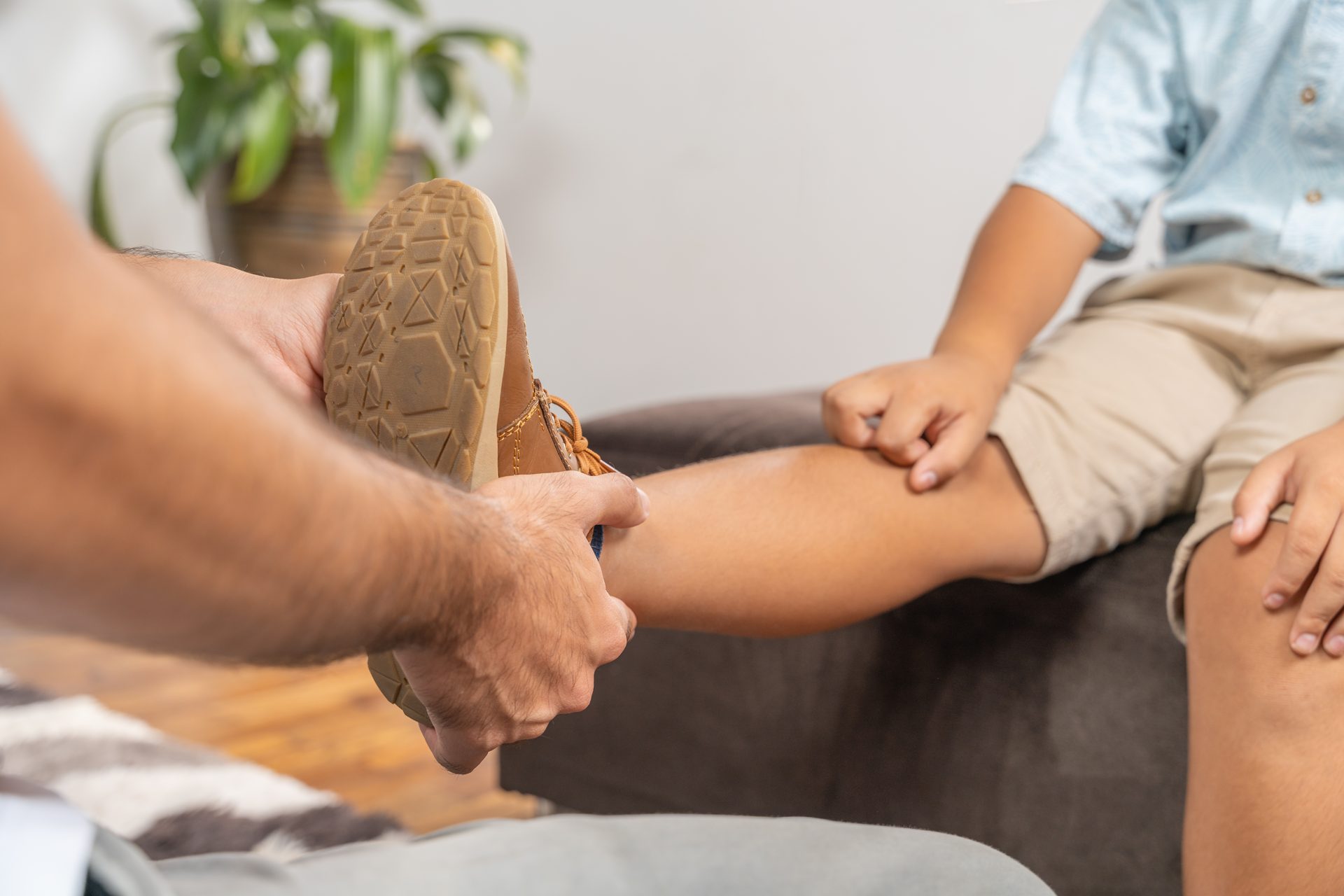
Management of the condition typically involves rest, applying ice to the affected heel, taking pain relievers if necessary, wearing supportive shoes, and performing specific stretches. Sever’s Disease generally resolves without lasting effects as children grow, but managing symptoms is crucial for maintaining comfort and activity levels during growth.
Preventative Measure for the Management of Sever’s Disease
Preventive measures include maintaining a healthy weight, taking breaks from activities if pain or swelling occurs, wearing supportive footwear appropriate for the activity, and varying activities to include low-impact options like swimming or bike riding to reduce stress on the heel bone.
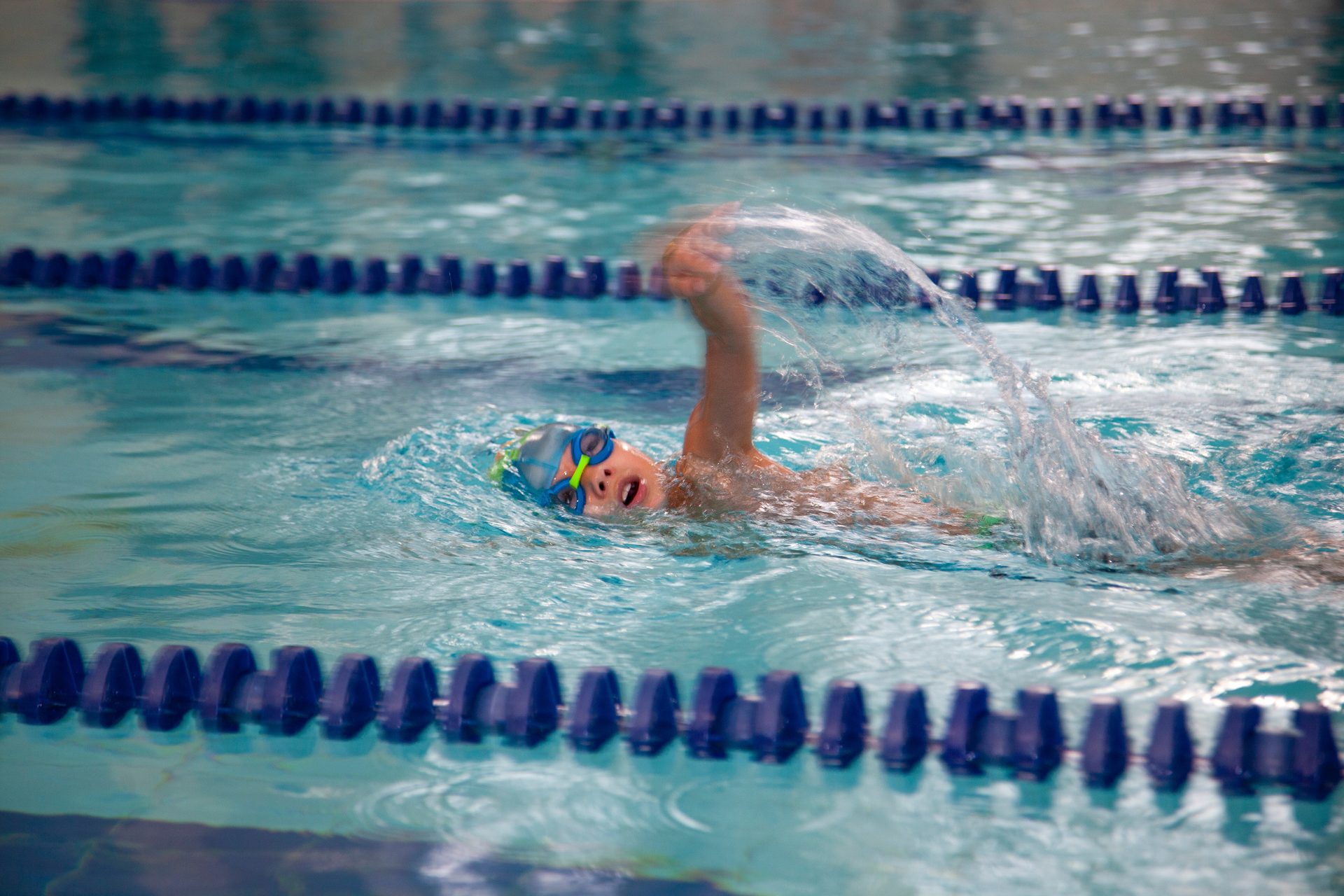
The care at specialised podiatry centres like The Foot Practice focuses on a combination of rest, physical therapy, and sometimes medication to manage symptoms and support the child’s return to activities. Physical therapy can be highly beneficial, focusing on stretching and strengthening exercises tailored to each child’s needs.
Interventions for Growing Champions
Sever’s Disease is a common cause of heel pain in active children and can sideline young athletes from the activities they love. Podiatrists can effectively manage symptoms and get your child back on track. Here’s a breakdown of key strategies to manage the condition:
High-impact activities like running and jumping that aggravate pain are temporarily reduced, allowing the inflamed growth plate to heal. This doesn’t mean complete inactivity but a shift towards lower-impact options to maintain fitness. Applying ice packs to the affected heel area is a simple yet effective way to reduce pain and inflammation.
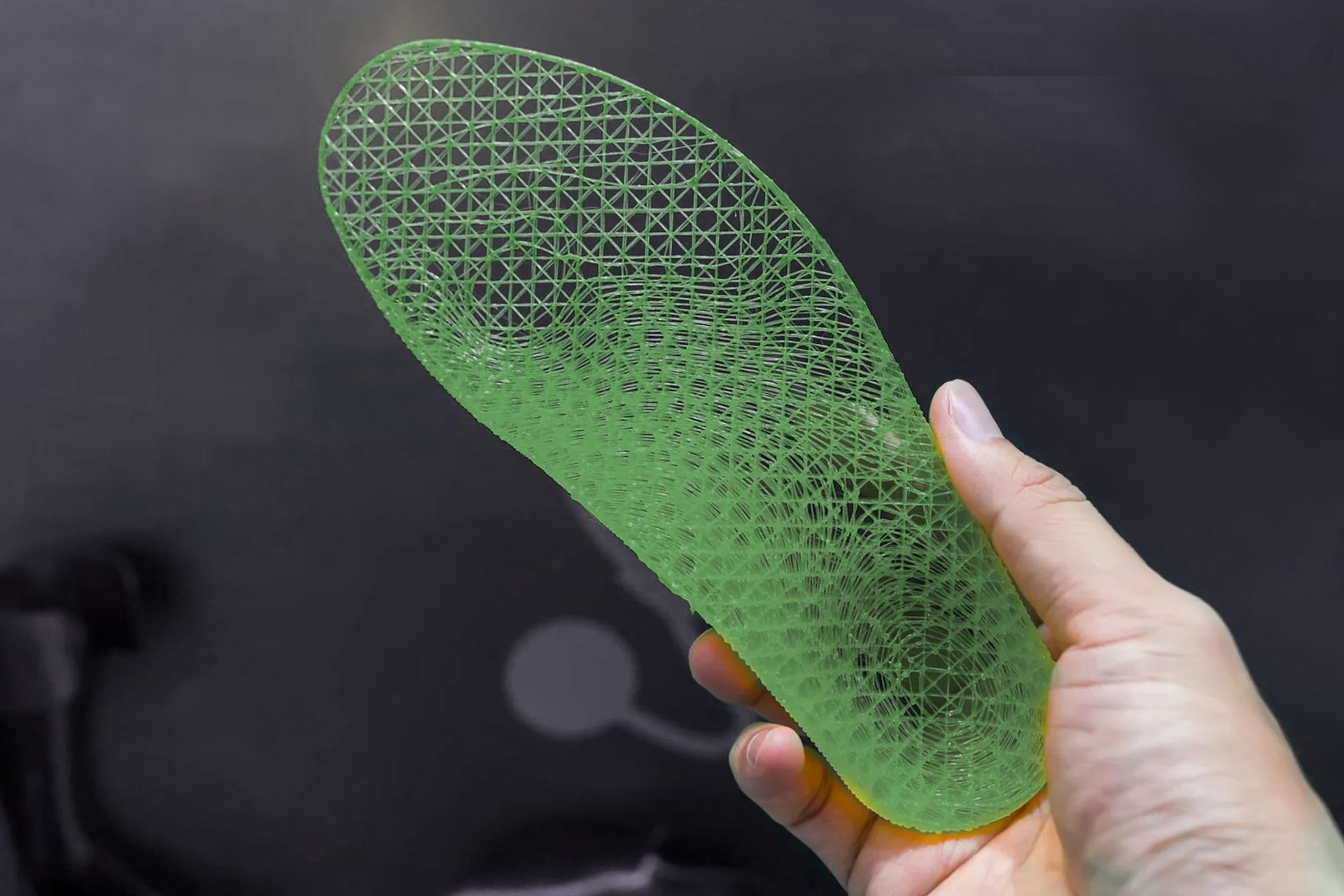
Choosing shoes with proper cushioning and arch support becomes vital. A podiatrist can prescribe custom Sever’s disease inserts for children to address any biomechanical imbalances contributing to the stress on the heel. Regular stretching routines targeting the Achilles tendon and calf muscles can significantly improve flexibility and alleviate pressure on the growth plate. A podiatrist can guide your child through these exercises.
Podiatrists emphasise the importance of a gradual return to activities once pain subsides. This helps prevent a recurrence. Education on proper warm-up and cool-down routines also becomes crucial for young athletes. Monitoring your child’s activity levels for signs of overuse is vital for the long-term management of Sever’s Disease.
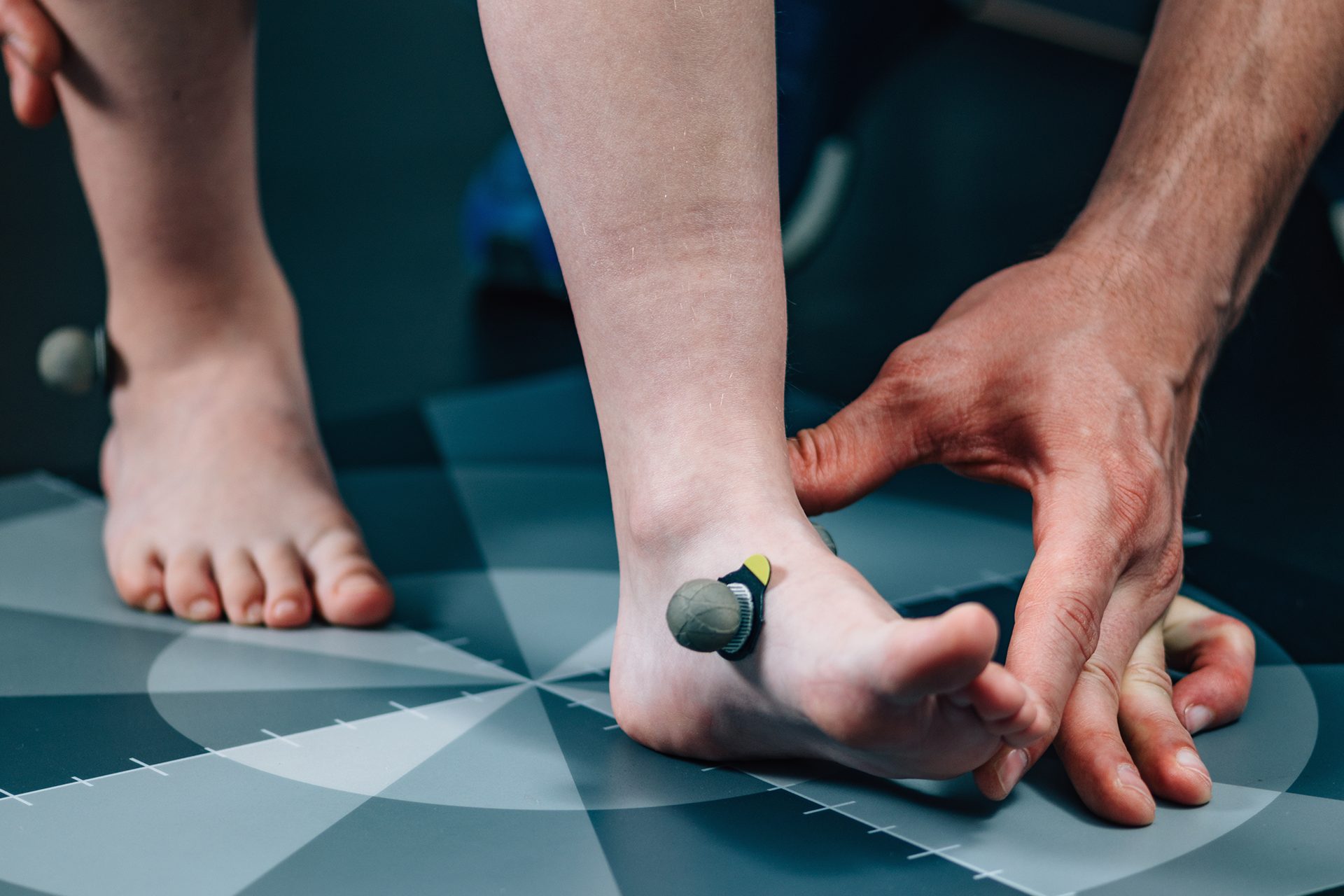
The good news? Sever’s Disease typically has a positive prognosis. As the growth plate matures, most children experience complete resolution of symptoms. However, ongoing management and preventive measures are essential to ensure continued participation in physical activities without discomfort.
If your child experiences persistent heel pain, it is best to consult a podiatrist. Early diagnosis and appropriate intervention can ensure a speedy recovery and support healthy foot development for your active child.


